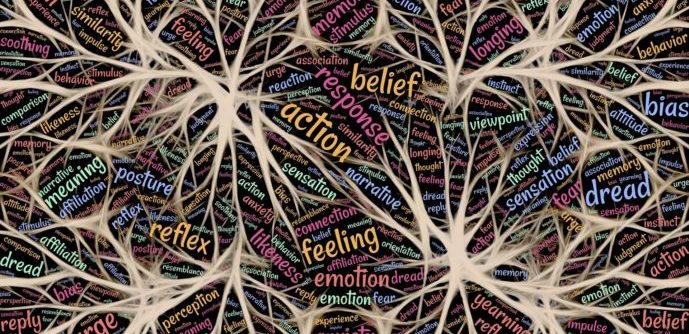You can let stress beat you up, or you can put it to work in…
Wake-up call! Your Brain will regularly make mistakes, cause conflict, and make you miserable if you don’t pay attention. Here’s what to do.
You may assume that all the thoughts and impressions crossing your mind have a basis in truth and rationality. Not true. Your brain can be a source of confusion, false beliefs, and false assumptions that can negatively impact relationships, cause unhealthy conflict, unnecessarily increase your stress and anxiety, and make you miserable if you let it.
***Click here to listen to this article through our Discover Your True Course Podcast channel.
Your brain does many vital things of which you are not consciously aware – digestion, respiration, circulation, etc. In the same way, your brain is active to protect you. Some neuroscientists assert that your brain checks five times per second, outside of your conscious awareness, to determine if you are safe and secure or in danger and at risk. The brain bases these determinations on your past experiences.
Still outside your awareness, if the brain determines that you are at risk or in danger, it will throw a chemical switch that signals your body to enter defensive mode – fight, flight, or freeze. However, your brain often gets it wrong. It may figure a circumstance is unsafe and put you in a defensive stress-filled posture when the case is not truly threatening.
Bodily and emotional sensations are your first indications that your brain has signaled “danger” or “threat.” Once you realize it, you have a choice. If the danger is real, let your brain do its work. If the situation is not truly dangerous, you can choose a more socially positive behavior than fighting, running, or hiding.
Here’s an example. Let’s say you are concentrating intensely on a task, and someone decides to come from behind, yell loudly, and poke you simultaneously. Before you were aware, your brain signaled danger and prepared your body to defend. If you had followed the impulse, you would have slugged the person, run out of the room, or ducked under the table. Instead, once you turned around, you realized the person was someone you knew and was friendly to you, though mischievous, laughter and all. The event was annoying but not a threat. So, you choose to express your displeasure and continue your business rather than fighting, running, or hiding.
Depending on your past experiences, your brain may see all kinds of threats in the social behaviors of others – the words they say, their voice tone, their body language, or the absence of clarifying information – which are without ill-intent and harmless. But you may take those impressions of threat as truth without additional evaluation or information gathering and experience increased anxiety and stress in relationships with possible conflict.
Let’s say a co-worker or family member is experiencing difficult circumstances unknown to you. Their demeanor may be extraordinarily quiet and withdrawn, or it may be angry and sharp. Your brain interprets this atypical behavior as a threat and prepares you to fight, run, or hide (avoid). When people base their behavior on such impressions, I hear, “I just know they are mad at me” or “I just know they don’t like me.” I question, “How could you know if this is true?” They answer, “Well, I guess I could ask,” and this is a more socially positive approach.
You can allow your brain’s otherwise helpful defensive impulses to lead you into more significant stress and difficulty in your life. Instead, consider thoughtfully evaluating whether such defenses – fight, run, or hide – are needed. Then, act accordingly. If such defenses are not required, use your communicative and people skills to understand the situation better and act considering the information you gather.
If you would like more information or assistance with becoming more self and socially aware or developing skills in interpersonal communication, conflict management, or stress management, contact us today to explore what True Course can do for you and your team. You can be more, see more, and achieve more in these soft skill competencies, and your organization can become a place where people love to work.





